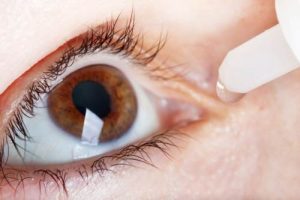
Dry eyes is a highly uncomfortable condition. Some people may experience burning, itchiness, and even temporary blurry vision. The condition itself may be temporary or chronic, depending on the cause.
Causes of dry eyes
Common causes of dry eyes include:
- Poor tear quality: The tear film is comprised of oil, water, and mucus. An issue with any of these three levels may result in dry eyes.
- Reduced tear production: Many factors may reduce your ability to tear. Age is a factor, as well as eye surgery and any medical condition that affects tear production.
- Eyelid problems: Having trouble blinking can lead to dry eyes.
- Medication: Some medications may affect your ability to produce enough fluid to keep eyes moist.
- Environment: Wind, air, and intense concentration can lead to dry eyes.
- Allergies: When seasons change, especially from winter to spring. The amount of pollen produced mainly depends on how long and how cold the winter was. Trees do not pollinate at the same time, but colder winters delay some types of tree pollination. This causes pollination for different trees to occur all at once, thus increasing the severity of allergy symptoms.
- Sjögren’s syndrome: This is an autoimmune disease where a person does not produce enough saliva or tears, resulting in dry eyes and dry mouth.
Signs and symptoms of dry eyes
Here are the symptoms you need to be aware of:
- Blurred vision
- Stinging, burning sensation
- Increase irritation
- Eye fatigue
- Light sensitivity
- Redness
- Feeling of having something in your eye
- Periods of excessive tearing.
These are the dry eye symptoms to look out for if you’re concerned that you may have dry eyes.